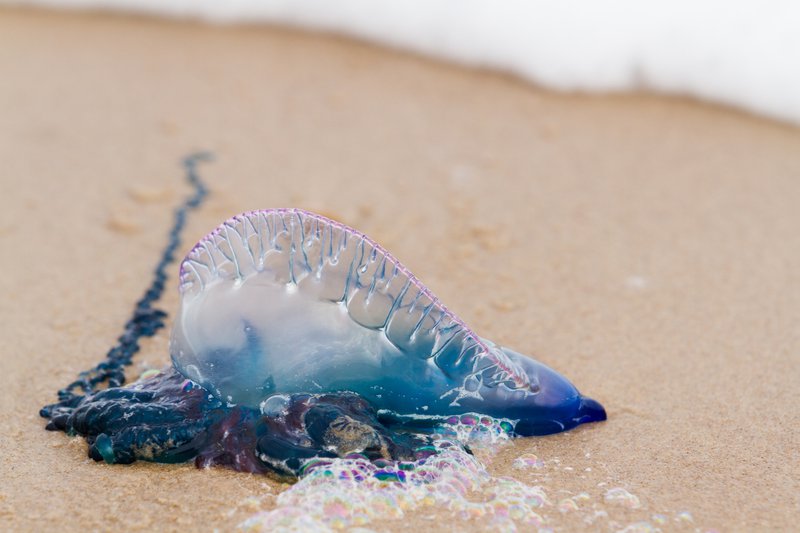Tips for dealing with bluebottle stings
Updated | By East Coast Radio
Bluebottles are like the mosquitos of the ocean, except a bluebottle sting is much more painful.

The infamous bluebottle.
We all know them and we all loath them.
There is no love-hate relationship here.
READ: World Consumer Rights Day: The Best of Consumerwatch
Most beachgoers, unfortunately, have probably had to deal with at least one bluebottle sting in their life.
While the weather is still good and the sun is still shining, you might be tempted to go for a dip in the ocean, but the South African Association for Marine Biological Research (SAAMBR) is here to tell you that it might not be the best idea.
READ: Da L.E.S faces backlash after party invite goes viral
According to the SAAMBR, you need to be extra careful as the north-easterly wind has blown a massive amount of bluebottles to the shore.
Watch out when you are on the beach as the stinging cells in their tentacles can still sting! Be careful if you are stung as some people can have allergic reactions to the stinging cells.- SAAMBR
READ: Read the first-ever Tweet that is about to sell for $2.5-million
If you do decide to go for a swim and end up being stung once or twice, this is what you should do:
- Get out of the water as soon as possible and find a place to rest where someone can keep a watchful eye on you
- Remove any of the remaining tentacles with a blunt object (like a credit card) or your fingers if you have nothing else with you
- DO NOT rub the affected area
- DO NOT urinate on the affected area
- Try to avoid rubbing it with sand as this will only help spread the venom
- Seawater is your friend: DO NOT rinse the sting with fresh water but use seawater instead (this will remove any other invisible stinging cells)
- Freshwater: this can only be used after rinsing with saltwater first and will help with the pain relief. Place the stung area in warm water (at a bearable temperature) and taking a bath is recommended
- If warm water does not help alleviate the pain, then only can you use cold water or an icepack on the affected area
- The Carpobrotus edulis is a fleshy succulent with pink flowers that can be found along many beaches. Use the leaves and apply the aloe-like gel to the affected area, but be sure not to rub
- Seek medical attention if the pain persists, becomes intolerable, or if the stings cover a large area
At the end of the day, the best way to avoid being stung at all is just not going to the beach for a few days.
Or at least until this all blows over.
READ: Andile Mpisane promises R10,000 to 20 students struggling with debt
Hopefully, these tips will help you in your time of need, but don't say we didn't warn you!
For more of the best Darren, Keri, and Sky moments, listen here:
Main image courtesy of iStock
Show's Stories
-
Gender reveal drama: Worst mother-in-law ever!
A mother ruined her son's perfect gender reveal moment and made it all a...
East Coast Breakfast 9 hours ago -
TikTok's US ban: What you need to know
TikTok's US ban may see 170 million users leave the app, but a White Hou...
Stacey & J Sbu 13 hours ago